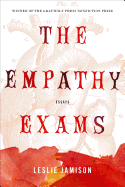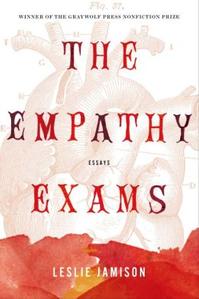

While all her essays are linked by the topic of empathy, their subjects range widely. One essay about incarceration deals with a man serving time for mortgage fraud who continues to declare his innocence; another covers the case of the West Memphis Three and the documentaries about them that so moved Jamison as a young woman. "Morphology of the Hit" studies Vladimir Propp's Morphology of the Folktale, which Jamison calls "a map for storytelling," and she uses that map to construct a narrative of the random act of violence she experienced in Nicaragua.
Within the context of pain, both injury and chronic illness receive repeated treatment. The Barkley Marathon, a grueling, almost unfinishable race through Frozen Head State Park in Tennessee, is presented both as a subcultural phenomenon and a subtext for pain. Jamison attends a conference for Morgellons patients--who believe they are infested with fibers and foreign matter crawling out of their skin--and the few doctors who will take them seriously; she finds herself responding with such empathy that she is in danger of catching the disease herself. She also leads readers on two "Pain Tours," closing with the specter of female pain, and female guilt over pain--making the studied choice to apologize for neither.
Throughout these varied topics, Jamison makes references to many thinkers and influences, from Lucy Grealy (Autobiography of a Face), Susan Sontag and Frida Kahlo to her own friends. Her essays often dwell in the theoretical and the academic; she is interested in philosophies, and admits to difficulty experiencing, recognizing and sharing her own emotions--a difficulty that occasionally manifests in pedagogy. However, readers will finish with no doubt she is sincere in her quest to own, identify and comprehend empathy. --Julia Jenkins
Shelf Talker: An essay collection that earnestly examines feelings--the author's and the world's.

